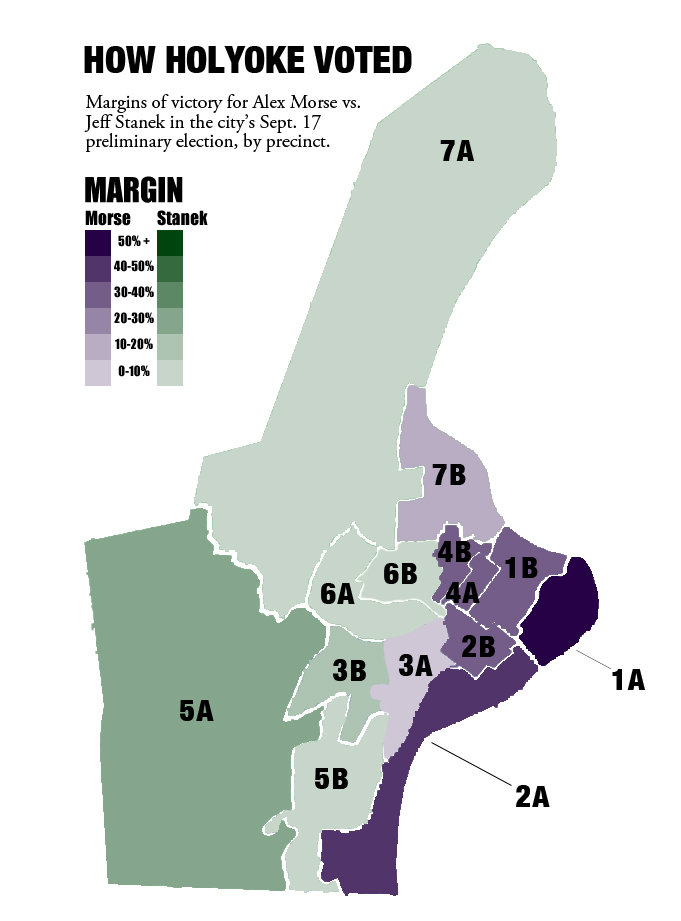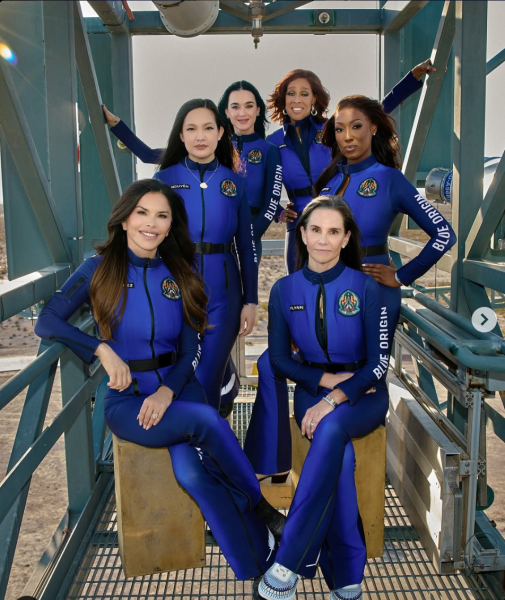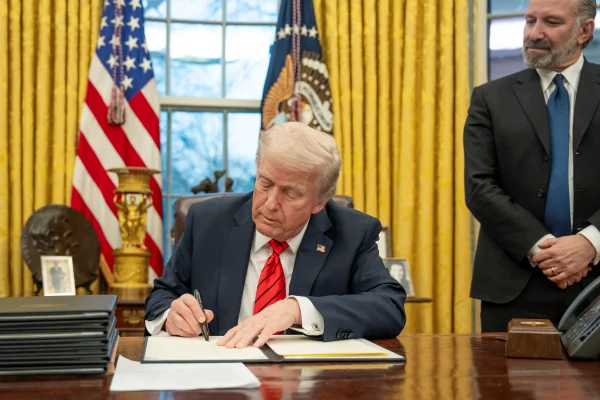Holyoke Primary Election
“We are going to celebrate tonight. But tomorrow it’s back out, knocking on doors,” says Mayor Alex B. Morse of Holyoke, Massachusetts. The first-term mayor was recently confirmed as one of two candidates last Tuesday with 45% of the vote, a narrow win against Jeffrey Stanek, an accountant and businessman.
A close race is expected between the two candidates as they vie for the city’s 24,363 registered voters. Tuesday’s race was a five-way standoff between candidates who ranged from the mayor, who received 2,419 votes, to Daniel Boyle, a writer for the Holyoke Sun, who received only 190 votes. Stanek and Morse emerged from the race collectively with 87% of the Holyoke electorate.
Of the roughly 40,000 Holyoke residents, including 24,363 registered voters, only 5,367 cast their ballots, putting voter turnout at 22.02%. The 2011 primary, where then-mayoral candidate Alex Morse beat Mayor Elaine Pluta by one vote had a similar turnout.
Mayoral candidates also included Jim Santiago, a US Air Force Veteran and maintenance worker, Daniel Boyle, a writer for the Sun and a business consultant, and Daniel Soskievitch, a former mayor of the city.
His rival, Jeff Stanek, however, was thrilled by the closeness of the race between them. Voters, Stanek remarked, should “do the homework. Make a decision and then stand by it. I have a lot of years as a control and chief financial officer, and I bring a lot to the table there, just in finances in general.”
The election featured dramatic displays of rivalry, such as when three candidates refused to attend a debate because of perceived pro-Morse bias on behalf of the organizers. In that debate, Mayor Morse and Daniel Szostkiewicz argued back and forth beside three empty chairs.
Additional controversy sprung up over a question of residency for Stanek. Although raised in Holyoke, Stanek spent the past fifteen years living in Maine and then Michigan before coming back to Holyoke in 2012. The city charter states in Section 45 that, “No person shall be eligible to any of the offices of the city government, except superintendent of schools, unless he is a citizen and has been a resident of the city for at least two years.”
City Solicitor Heather Egan brought up the rule in mid-summer but declined to issue a formal opinion on the matter amid backlash from the community. If Stanek is elected, he could feasibly be sued for the removal of his position, though no party has expressed interest in doing so as of yet.
Mayoral candidate Stanek markets himself as a businessman with a much-needed perspective in the perennially ailing city. He was CFO of numerous companies, including a Portland, Maine based yacht retailer. His main focuses for the city are economic development, reduction of “operational inefficiencies,” and the promotion of the city as a safe and vibrant place to live.
Ideally, says Stanek, “We need to aggressively market companies in fields such as manufacturing, warehousing, distribution, and telecommunications where employees can experience growth and promotions from within.”
The incumbent Mayor Morse is running a race on the record he has built over the course of his term. He points to his emphasis on the creative economy and technology sectors in the city, including his creation of the position of Creative Economy Coordinator, currently held by Jeffrey Bianchini. Additionally, the mayor is proud of his work improving Holyoke’s image in the public eye and to businesses.
Of Mayor Morse’s initiatives to grow the art and tech industries in the city, Stanek says, “we cannot force an industry into a city that simply does not have an employee base to hire from.” His emphasis lies more on the manufacturing and large-scale retail opportunities for the city, such as the Wal-Mart proposal that generated serious controversy.
In a commercially zoned but heavily residential area, Wal-Mart expressed interest in setting up a large store with groceries and gardening equipment in addition to the usual Wal-Mart fare. Many locals protested, largely due to the increased traffic and decreased home values they expected. A broad coalition sprung up against Wal-Mart’s proposal; the group claimed that Wal-Mart would drive so many stores out of business that the hundreds of jobs it would create would instead be leeched from other businesses, causing a net-drain on the area.
After considering the matter for weeks, the mayor announced that he would “use the full weight of my office” to prevent Wal-Mart from setting up shop. Stanek, on the other hand, stated that “we could use the jobs; we could use the taxes to our base,” and supports the development. Amid all of this uncertainty, Wal-Mart withdrew its intention to build a shopping center in the area and left.
This coming election promises to be a tumultuous one given the tightness of the race and the passionate supporters on each side. Mike Plaisance, a writer for The Republican who focuses on Holyoke news, once said that, “Holyoke has always played politics like a street fight,” with deeply entrenched sides and vocal opposition. As November nears, we will see how true that statement really is.








